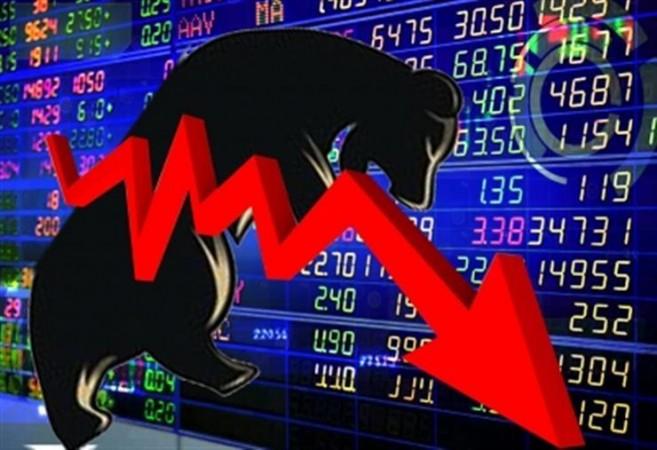Indian benchmark indices plunged sharply on Friday as bearish sentiment on D-street tightened the grip on the market with a sharp sell-off on the back of resurging covid fears, recessionary pressure and data coming from the US that points towards further tightening of monetary policy.
The BSE Sensex opened in deep red at 60,205 points and plummeted almost 900 points or 1.47% from the previous close of 60,826 points, while Nify-50 opened below the 18,000 mark for the first time since November at 17,977 points. Nifty Bank started trading at 41,951 points and plummeted 670 points or 1.58% from the previous close of 42,408 points.
Sensex is trading at 59,957 points after hitting a low of 59,887 points and Nifty-50 is currently trading below 17,800 points, and Nifty Bank is trading at 41,739 points as of 3:00 PM.

Prashanth Tapse, Research Analyst and Senior VP (Research) at Mehta Equities said, "Markets may falter in early trades Friday amid global weakness as recession fears in key economies loom large, with the US economy growing above expectations in Q3 raising concerns that the Fed could continue to hike interest rates to battle inflation. If the turbulence in the market continues, Nifty is likely to close below the psychological 18000 mark. Globally, investors are already in a cautious mode after the recent spurt in Covid cases in China, Japan, as any explosion in cases could trigger a major sell-off going ahead."
The short-lived positive trend on Wall Street ended on Thursday as recession fears weighed heavily on investors. The Dow Jones Industrial Average closed 348 points or 1.05% lower, while S&P 500 tanked 56 points or 1.45% and Nasdaq Composite lost 233 points or 2.18%.
Real gross domestic product (GDP) in the US increased at an annual rate of 3.2 percent in the third quarter of 2022, in contrast to a decrease of 0.6 percent in the second quarter, which is good news for the economy. Still, the paradox of good economic news is turning out to be bad for the market as it indicates that Fed will not shy away from further rate hikes in 2023, increasing the possibility of a recession.

It may seem counterintuitive but investors are looking for signs of a slowing economy. Daly Andersson, CFA, CFP® and co-owner and managing partner at Tenet Wealth Partners, said, "Any numbers that are showing a more restrictive economy are going to be positive [for the stock market] in terms of showing that it's going to lead to lower inflation numbers. Inflation is still going to be that lagging indicator. It's going to take a while to see a difference in those figures."









!['Had denied Housefull franchise as they wanted me to wear a bikini': Tia Bajpai on turning down bold scripts [Exclusive]](https://data1.ibtimes.co.in/en/full/806605/had-denied-housefull-franchise-they-wanted-me-wear-bikini-tia-bajpai-turning-down-bold.png?w=220&h=138)



